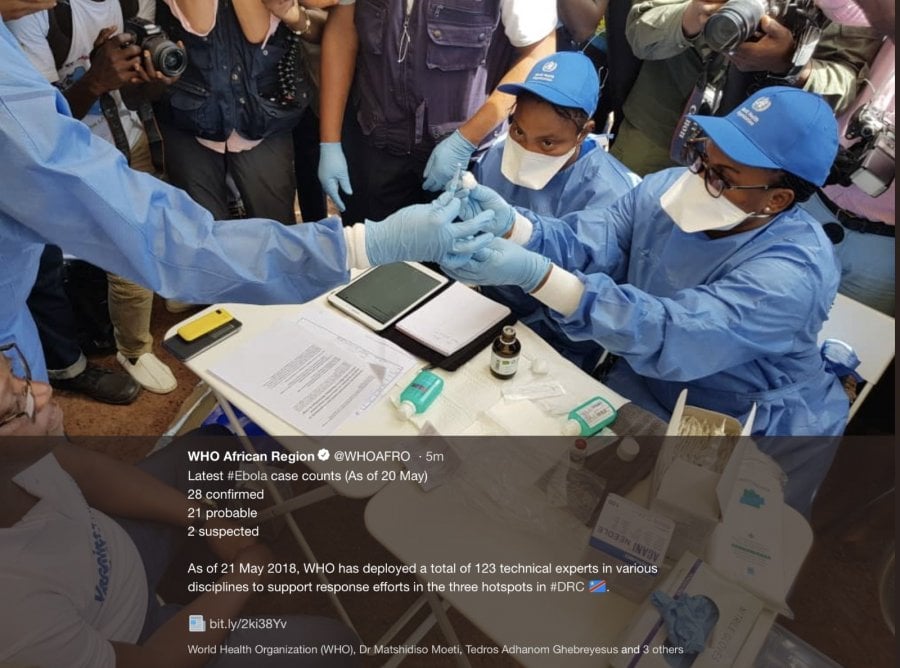Exploring vaccines during emergent disease outbreaks

Anthropology
There is a need to understand different perspectives about vaccines and outbreaks, including the political and economic factors, health system perspectives, community perceptions surrounding vaccine use, and community experiences of vaccination that determine whether vaccines can be deployed effectively in an emergency situation. The AViD study will explore these areas in five countries.
Data Infrastructure
In the context of an outbreak, rapid mapping, data collection, analysis and response can limit the extent to which infection can continue to spread. At LSHTM we use “Open Data Kit” (ODK) for emergency response data collection. For this study we are developing electronic data tools for use in outbreak emergency situations.
Epidemiology and Modelling
Vaccines are being developed for Ebola, Lassa, plague and MERS, but their effectiveness can only be tested during an outbreak, which is challenging: Epidemics can be hard to predict, and the priority is immediate control rather than research. The VEEPED consortium will examine which trial designs might have the best chances of success, as well as how licenced vaccines might be optimally deployed in practice.
Molecular Epidemiology
Molecular typing approaches have significantly improved detection of encapsulated bacteria that cause meningitis. Nevertheless, every year a large proportion of cases remain uncharacterised. MEVACP aims, through collaboration with existing reference labs, to harmonise the use of molecular diagnostic assays across the belt. A key feature of MEVACP will be an online platform for visualising meningitis outbreaks in Africa in real-time.
Vaccine Trial Design
The Oxford/Cambridge/Harvard consortium will work on: i) enhancing vaccine trial designs by making use of pathogen genomics to improve estimation of vaccine effectiveness; ii) developing novel trial designs that can adapt decisions about how to allocate vaccines to trial participants in order to determine which vaccines and deployment strategies are most effective faster; and iii) further developing epidemic forecasting approaches to better inform vaccine trial design.
Speakers:
Dr Shelley Lees
AViD – Anthropological exploration of facilitators and barriers to vaccine deployment and administration during disease outbreaks
Professor John Edmonds
VEEPED - Vaccine Efficacy Evaluation for Priority Emerging Diseases (VEEPED Epidemic Modelling Consortium)
Dr Chrissy Roberts
Electronic Data Capture to support rapid epidemiological research and response during epidemics
Professor Martin Maiden
Molecular Epidemiology for Vaccine Policy (MEVACP)
Dr Ben Cooper
Leveraging Pathogen Sequence Data and Adaptive Designs to Improve Vaccine Trials in Emerging Epidemics in LMICs
These projects were funded by the National Institute for Health Research using Official Development Assistance (ODA) funding. The views expressed are those of the author(s) and not necessarily those of the NHS, NIHR or the Department of Health and Social Care
Photo: @WHOAFRO
Admission
Contact
